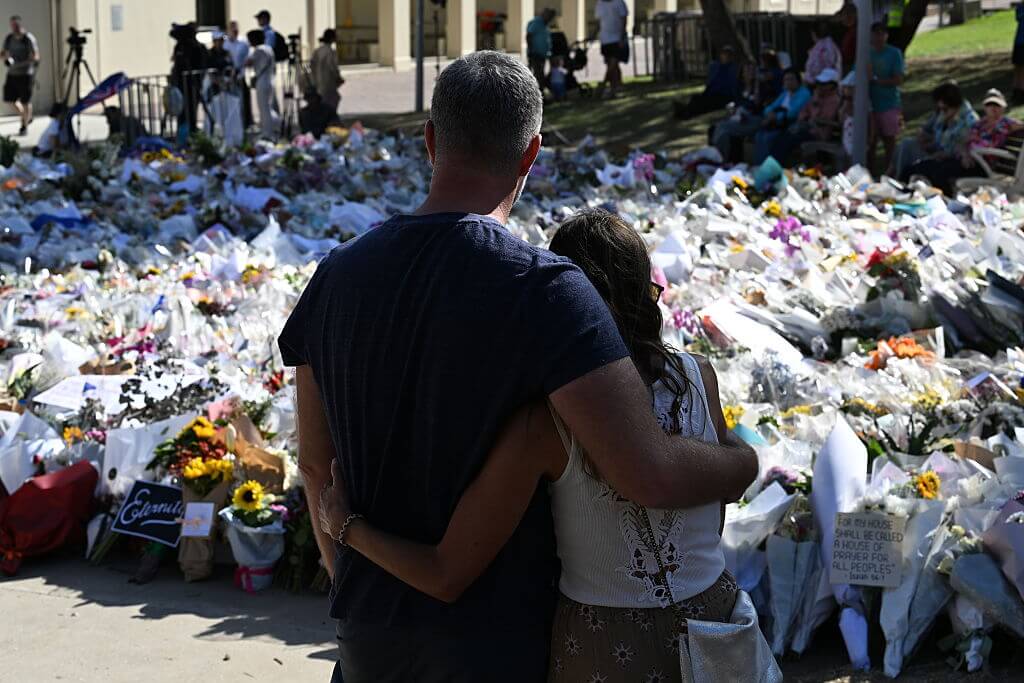Four Men Who Resisted History
According to Jewish belief, God transcends history. He started it and could intervene in it at any time. But by means of ritual practices, memorializing events, educational transmission and interpretive practices (for texts and for law), Jews emphatically live out the belief in a suprahistorical God in recognition that historical time matters. Moreover, God’s plan for the future, obscure though it is, unfolds in history. To obey a power above and beyond history, then, is still to live in it and take it seriously.
David N. Myers’s sparkling new book studies what happened to Jewish thought when, in modern times, history left behind its earlier, sacred incarnations and became a subject of secular investigation by critical scholars. Following his teacher, Yosef Hayim Yerushalmi, Myers treats traditional “memory” as giving way to modern “history” and strives to determine what the effects on Jewish culture were when history took on its characteristic modern form: The scientific and critical study of the past, rather than the memorial and traditional reproduction of the past.
Myers, professor of Jewish history and vice-chair of the history department at the University of California, Los Angeles, is right to observe that the origins of modern critical history posed a serious challenge to Judaism, as to other forms of belief. This is not because Judaism had never been “historicist,” or bound up with beliefs about the nature of the past and consciousness that the times change, but rather because critical history, following Spinoza’s biblical criticism, represented a new and — from the perspective of religious tradition and authority — potentially corrosive form of study. Increasingly, as Spinoza’s career graphically showed, thinking about the past as past — that is, as fundamentally distinct from the present — could become the most obvious way of departing from the tenets of inherited faith. The more one knew about the past, the more reasons there were for abandoning it.
Myers shows that in 19th-century Germany, many Jews, like many Christians, attempted to interpret their faith in a manner compatible with the new critical attitude toward the past. For example, Christian thinkers began to emphasize the human Jesus of history rather than the divine Christ of faith. Jesus’ life, interpreted as an exemplary ethical model, fit better with the new historical consciousness, which corroded the possibility of believing in his divinity and miraculous abilities. But the attempt to reinvent traditional religion as compatible with the dictates of modern attitudes toward history proved increasingly problematic. Famous studies of Jesus’ life by David Friedrich Strauss and Ernest Renan sapped away the new foundations for religion that 19th-century believers sought.
In Judaism the historical treatment of religion proved a crucial step in the construction of movements familiar to this day — Conservative and Reform — but the new perception of history’s significance also gave rise to the destructive premise that nothing is true beyond its own time. This premise implied that the allegedly suprahistorical God of monotheism might represent only one more temporary belief, rooted in and relevant to a particular time and specific place. The result, known then and since as the “crisis of historicism,” seemed to be pure relativism. No wonder one of Myers’s protagonists offered a dire warning against “the curse of historicity.”
In his book, Myers recounts the careers and philosophies of four German-Jewish thinkers of the late 19th and early 20th centuries — Hermann Cohen (1842-1918), Franz Rosenzweig (1886-1929), Leo Strauss (1899-1973) and Isaac Breuer (1883-1946) –– who all resisted history because of the relativistic threat it posed to religion. In this series of groundbreaking, carefully researched and absorbingly written chapters, Myers presents different versions of their shared conclusion that the attempt to synthesize ancient faith and modern history must fail, and that a new basis for Judaism had to be revived from the past or discovered for the future.
Cohen epitomized the attempts to synthesize Judaism with the modern philosophical tradition, and to understand Judaism’s main contribution as an ethics, roughly consonant with Immanuel Kant’s philosophy, which he championed. Rosenzweig, among the most famous Jewish thinkers of the last century, broke with Cohen’s Kantianism to recommend a Judaism that harmonized with the turn toward existentialism of his day. Strauss, now notorious as the founder of American neoconservatism, claimed in his youth that neither Kantianism nor existentialism did justice to the allegiance of traditional Jews to God’s authority as expressed in law. (Myers’s chapter provides one of the first examinations of the significance of Strauss’s newly available Weimar-era writings.) Finally, Breuer, a neo-Orthodox thinker, recognized and responded to the threat that historicism posed to the traditional belief that the Jews were no ordinary people, subject to the historical vicissitudes of other nations.
Two innovations in Myers’s book are especially noteworthy. First, Myers integrates the study of Jewish trends with the examination of corresponding Christian developments, since they were often contemporaneous. For example, the most famous Protestant thinker of the 20th century, Karl Barth, who most memorably rejected history as a support for religion or historical study as a means of approaching sacred texts, knew Cohen’s work well and found an audience in Rosenzweig and, especially enthusiastically, in Strauss.
Second, Myers is especially interested in the ways in which his protagonists reacted to the project of Jewish history, conducted by Jews like Heinrich Graetz in a more secular guise. As a result, Myers’s discussions of even much-studied figures like Rosenzweig (a professional historian before he became a famous theologian) cover new ground. In this way, too, Myers’s new book is related to his older study on the origins of Zionist historiography occurring at roughly the same time, “Re-Inventing the Jewish Past: European Jewish Intellectuals and the Zionist Return to History” (Oxford University Press, 1997). Not surprisingly, those who “resisted history” had a more ambivalent, even critical, relationship to the Zionist project of their moment.
Myers begins and ends his book with the suggestion that it is impossible to avoid the historical mindset, so that even the most vigorous attempt to resist it can never fully succeed. For this reason, Myers might well have chosen for his title “History’s Revenge,” for his basic thesis is that, even as they tried to reject history, Cohen, Rosenzweig, Strauss and Breuer could not help but incorporate it into their disparate projects.
But not all forms of historicism are the same, and it is perfectly intelligible to be against one and for others. As noted, the Jews adopted sacred forms of historicism long before their 19th-century encounter with secular forms. And the departure from secular history, which Myers’s protagonists advocated, looks like it “resists history” only if one defines secular, critical history as the standard against which all other ways of relating to the past are to be judged. So Myers’s study stands or falls on the justifiability of his baseline. For their part, Myers’s protagonists sometimes saw themselves either returning to the more traditional historical attitudes of normative Judaism or progressing to new ways of relating to the past that were so different from the secular historical attitude that Myers’s presentation of his figures as falling back into what they wanted to give up is only partially convincing.
Another way Myers’s book serves as a study of history’s revenge is his emphasis that, ironically, the very attempt to leave history behind is only intelligible historically. He writes that it is “a bit poignant,” yet true, that “Cohen and Rosenzweig … fashion[ed] visions of Judaism rooted in the very historical contexts they sought to escape.”
Indeed, Myers’s brilliant analysis shows that the attempt to resist history is itself a historical phenomenon. It occurred at a time, and in ways, that only historical contextualization can explain. But it is not clear how much it matters that a historian can show when, why and how a person who doubts the use of history came to think the way he did.
It is possible that none of Myers’s protagonists conceded the necessity and inevitability of secular history (even when they sometimes found it useful) because they recognized that knowing about the historical origins of a belief and evaluating the truth-value of that belief are entirely different matters. It is a fact that algebra and relativity were discovered at some time in history, but this fact in no ways helps decide whether either is eternally true. Few would conclude, for example, that knowing the formative circumstances in which Albert Einstein discovered relativity should lead one to doubt the eternal truth of his physics.
Therein lies the ultimate question: How important is Myers’s insistence on the historicity of the resistance to history for the
overall viability of the attitude that Myers’s protagonists rejected, and the series of alternatives they offered in response to it?
In closing his book, Myers writes, “I empathize with … those who yearn for an experience or belief system that defies historical gravity.” Still, he concludes, it seems most plausible that Judaism’s “most treasured ideals — those that have been eroded by the lapping waves of modern historicism — are destined to be fortified and reconstructed only by historicism itself.” But when defined as secular and critical study, it remains unclear how “historicism” could ever serve Jewish faith in the way Myers hopes. It seems that no matter how much historians learn about the origins of a proposed point of view, history itself cannot address whether that view is true or valid. If such is the case for algebra and relativity, is it not also the case for whatever principles Judaism claims to be true for all time?
In the end, Myers’s book, in deftly presenting the alternative between accepting and resisting history, not only shows that the resistance to history occurred in history. Not the least of the accomplishments of Myers’s outstanding work of history is that, intentionally or not, it raises the question of whether history is up to the acknowledgment of its own limitations.















